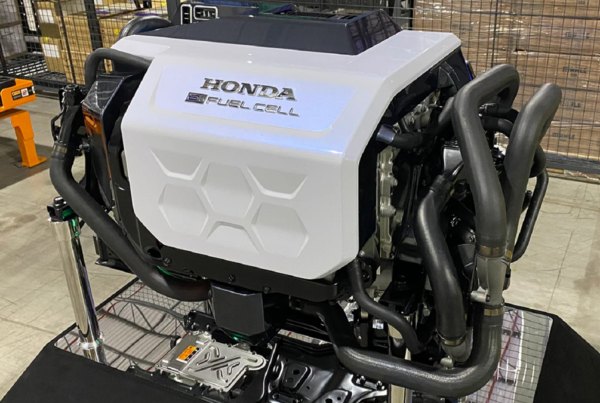
A new Deakin University research centre in Warrnambool could make clean, quiet trucking, a reality – and position Warrnambool and the broader South-West region to tap into the world’s growing, multi-billion-dollar, hydrogen market.
Deakin Vice-Chancellor Professor Iain Martin said the new Hydrogen Transition Centre will be set-up at the Warrnambool campus, creating professional work for up to 12 locals, as the first step in establishing a $20 million HyceL@Warrnambool research and industry testing site.
“The centre will partner with industry to apply Deakin University’s world-leading capabilities to solve one of our toughest transport issues: how to fuel the world’s trucking industries in a low carbon future,” Professor Martin said.
“Freight trucking continues to grow here and overseas, and trucks are driving further, with heavier loads; all big challenges. The centre confirms Deakin’s commitment to the Warrnambool campus and the broader region, and when the HyceL@Warrnambool project is fully established it will create up to 200 full-time jobs.”
An Australian first, the Hydrogen Transition Centre is funded by $2 million in Federal Government research funding, announced at Deakin’s Warrnambool campus by the Minister for Education, The Hon Dan Tehan MP.
“The Federal Government investment will see our researchers partner with Australia’s leading truck manufacturer, Kenworth, as well as with industry leaders in hydrogen fuel-cells, electric vehicles, and gas distribution,” Professor Martin said.
Hydrogen fuel-cells create electricity from hydrogen and oxygen-producing only heat and water as a by-product. The centre will test how fuel-cells can work together with electric vehicle technologies. It will mean an electric truck can create power while driving, avoiding the need for frequent stops and battery charging infrastructure.
“If successful, the enhanced technologies could be used by Kenworth trucks made here in Australia, as well as those made internationally by Kenworth’s parent company PACCAR – a US Fortune 500 company. The technologies can also be applied to other heavy vehicles, such as buses, including those operated by Warrnambool Bus Lines,” Professor Martin said.
Building Warrnambool’s status as an emerging renewable energy hot spot and supporting the Warrnambool City Council’s ambitions of achieving carbon neutral status by 2040, a hydrogen future could indeed burn bright for the city and the region.
The Hydrogen Transition Centre will put Victoria’s South-West at the heart of Australia’s work in hydrogen fuel-cell innovation and position the region well, to cash-in as new markets for hydrogen technologies emerge in the international push for cleaner transport. In less than ten years, the global fuel-cell market is predicted to be worth more than USD $49 billion.
In addition to truck tech, the centre will also test hydrogen safety and distribution, including how natural gas pipes can safely transport hydrogen in the future. Long-term, the centre will also support the region to become a producer of so-called “green” hydrogen, an exportable commodity, made by using renewable electricity to split hydrogen and oxygen from water to create a new mode of energy storage.
Source: Deakin University
Read the most up to date Fuel Cell and Hydrogen Industry news at FuelCellsWorks




